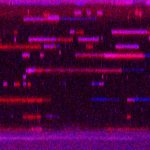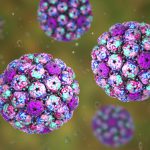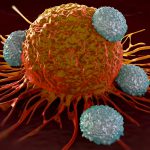Each type of cell in the human body — such as those in eye, kidney or immune cells — expresses a unique combination of genes. And how those genes are expressed can have major implications for disease, including immune disorders such as Crohn’s disease, multiple sclerosis and type 1 diabetes.
University of Pittsburgh School of Medicine systems immunologists — aided by a large federal grant that is part of a new National Human Genome Research Institute (NHGRI) initiative — are launching a multi-year project to untangle this challenging problem in human B cells and set the stage for new, life-altering therapies.
“Previous studies have associated considerable variation in the regulatory code of the human genome with diseases. But we don’t yet understand the molecular basis of how most of this variation contributes to particular diseases,” said co-principal investigator Dr. Harinder Singh, professor of immunology and the director of the Center for Systems Immunology at Pitt. “We want to provide such molecular insights.”

Dr. Harinder Singh
Gene expression is coordinated by complex gene regulatory networks involving proteins called transcription factors that bind to regulatory regions of the genome, switching genes on or off or modulating their activity levels. Variation in these regulatory regions has been linked with various genetic diseases, but how this variation contributes to disease has been difficult to interpret.
Using B cells of the immune system as a model, the Pitt scientists aim to decipher regulatory networks that control gene expression and pinpoint how variation in regulatory regions of the genome alters cell function, findings that could shed light on the genetic basis of autoimmune disorders. The work is funded by a five-year $4.75 million grant from the NHGRI Impact of Genomic Variation on Function (IGVF) consortium.
“We believe that this genomic analysis of human B cells will provide a double benefit. One is a deeper understanding of the immune system and B cells, which carry out extremely important immune functions by producing antibodies that target pathogens,” said Singh. “The second is generalizable insights that can be applied to understanding of any differentiated cell type.”
Singh, in collaboration with co-principal investigators Dr. Jishnu Das, assistant professor of immunology and computational and systems biology at Pitt, and Dr. Nidhi Sahni, associate professor of epigenetics, molecular carcinogenesis, bioinformatics and systems biology at the University of Texas MD Anderson Cancer Center, will use experimental and computational approaches to map gene regulatory networks used by B cells. Singh estimates that these networks will contain tens of thousands of regulatory sequences that control the activity of several thousand genes.
“We will be the first to build a comprehensive catalog of functional regulatory sequences — the cis-regulome — for any human cell type,” said Singh. “The cis-regulome will lay the foundation for assembling a dynamic gene regulatory network comprising transcription factors and their target genes.” The researchers will then investigate how variation in the B cell cis-regulome contributes to autoimmune diseases.
The project is one of 25 that were funded through the IGVF consortium, a collaborative effort that aims to improve understanding of how genomic variation affects human health and disease.









